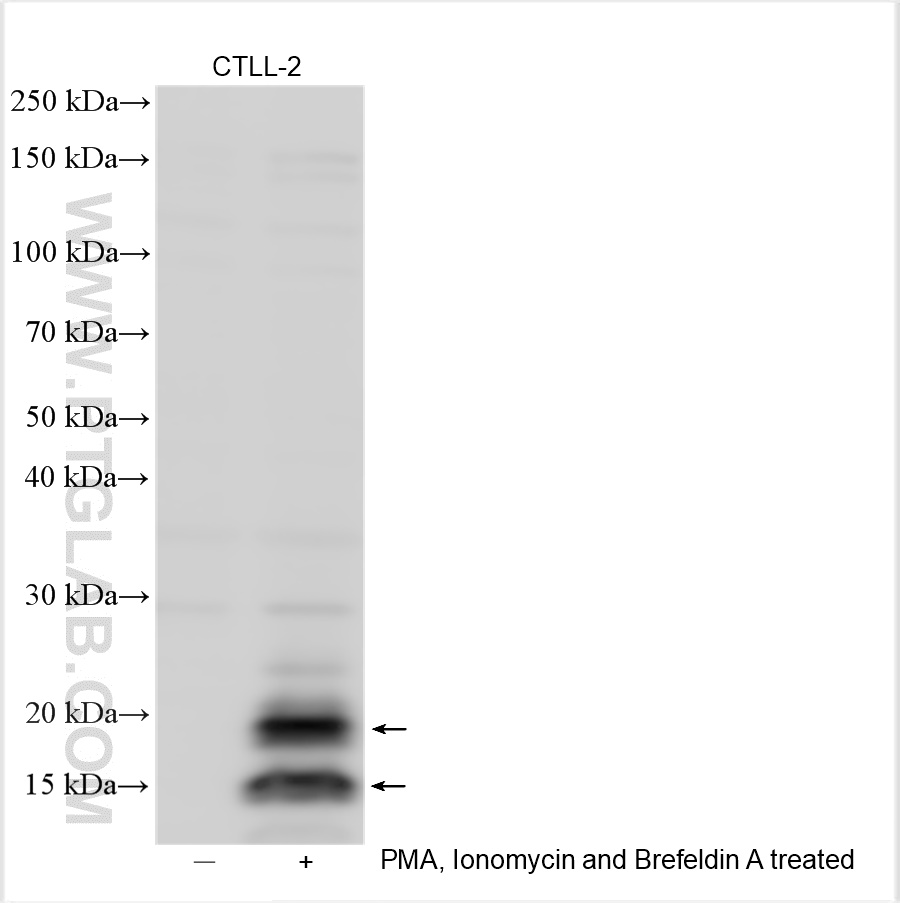验证数据展示
经过测试的应用
| Positive WB detected in | PMA, Ionomycin and Brefeldin A treated CTLL-2 cells |
推荐稀释比
| 应用 | 推荐稀释比 |
|---|---|
| Western Blot (WB) | WB : 1:500-1:2000 |
| It is recommended that this reagent should be titrated in each testing system to obtain optimal results. | |
| Sample-dependent, Check data in validation data gallery. | |
产品信息
29788-1-AP targets IFN-gamma in WB, ELISA applications and shows reactivity with mouse samples.
| 经测试应用 | WB, ELISA Application Description |
| 经测试反应性 | mouse |
| 免疫原 | fusion protein 种属同源性预测 |
| 宿主/亚型 | Rabbit / IgG |
| 抗体类别 | Polyclonal |
| 产品类型 | Antibody |
| 全称 | interferon gamma |
| 别名 | IFN gamma, Ifng, IFN-gamma,IFN gamma,IFN γ,IFNγ, IFN γ, IFN g |
| 计算分子量 | 17 kDa |
| 观测分子量 | 15-18 kDa |
| GenBank蛋白编号 | BC119063 |
| 基因名称 | IFN gamma |
| Gene ID (NCBI) | 15978 |
| RRID | AB_3086161 |
| 偶联类型 | Unconjugated |
| 形式 | Liquid |
| 纯化方式 | Antigen affinity purification |
| UNIPROT ID | P01580 |
| 储存缓冲液 | PBS with 0.02% sodium azide and 50% glycerol , pH 7.3 |
| 储存条件 | Store at -20°C. Stable for one year after shipment. Aliquoting is unnecessary for -20oC storage. |
背景介绍
IFN gamma (IFNG) is a soluble cytokine that is the only member of the type II class of IFN. It is secreted by Th1 cells, cytotoxic T cells and NK cells. The cytokine is associated with antiviral, immunoregulatory and anti-tumor properties and is a potent activator of macrophages. It plays crucial roles in pathogen clearance. Aberrant IFNG expression is associated with a number of autoinflammatory and autoimmune diseases. It has been identified in many studies as a biomarker for pleural tuberculosis (TB).
实验方案
| Product Specific Protocols | |
|---|---|
| WB protocol for IFN-gamma antibody 29788-1-AP | Download protocol |
| Standard Protocols | |
|---|---|
| Click here to view our Standard Protocols |
